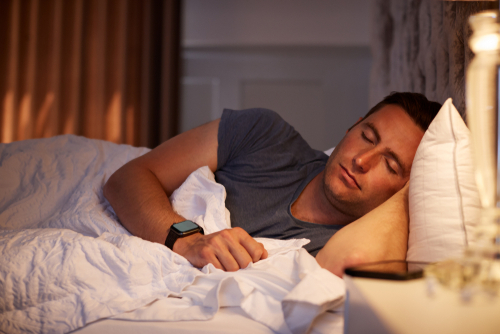6 Nighttime Oral Health Tips
6 Nighttime Oral Health Tips
We already know the importance of regular dental checkups, keeping a healthy diet, and brushing our teeth for better oral health. However, did you know you can step up your oral health precautions during the night, even when you are asleep?
In today’s post, we’ll talk about some helpful and practical oral health tips for nighttime. Even if we are asleep, a lot can happen inside our mouth. Bacteria can gather around our teeth and gums, which can cause plaque, gingivitis or gum disease, and other oral infections.
Tips for Improved Oral Health
These simple dental care tips are essential to make sure we are maintaining the health and cleanliness of our teeth and gums throughout the night.
Brush your teeth before bedtime.
Hopefully, everyone is already practicing these tips. Brushing your teeth before going sleep at night will stop the buildup of tooth decay, plaque, and gum disease while you’re asleep. If you are someone more susceptible to gum disease and cavities, it’s recommended that you brush your teeth right away after eating dinner and brush again before going to sleep at night.
Brush all surfaces of the teeth.
This tip is not just for nighttime dental health measures. Knowing that you need to brush your teeth before bedtime is already a good thing. However, you must also understand how to brush your teeth properly. Oral health professionals recommend brushing your teeth back and forth using gentle strokes.
Make sure to brush the outer surfaces of the teeth, then the inner surfaces, then move on to the chewing surfaces. To get to the back of the front teeth, you can use the tip of the toothbrush and brush gently using up and down motions.
Floss your teeth.

If flossing your teeth is not part of your daily oral health routine, then you should make changes right away.
When you floss, you are removing the smaller food particles that get stuck between the teeth. This helps in preventing plaque and cavity buildup in your teeth.
Throughout the night, when you’re asleep, there’s an increased likelihood of bacteria from leftover food particles spreading and multiplying inside your mouth. Furthermore, when plaque hardens, it will lead to tartar. Only a dentist or dental hygienist
When you floss, you’re making sure these food particles are gone, preventing bacteria from feeding off them and spreading in your mouth. If, on the other hand, the bacteria stays in your mouth and on your teeth throughout the night, it might lead to tartar buildup.
Thus, it’s essential to floss, especially at night before going to bed. However, if you are more prone mouth infections and gum disease, make sure you are flossing twice a day – once in the morning and once at night.
Use an electric toothbrush.
An electric toothbrush has a head that can rotate and oscillate quickly. This feature helps in ensuring that you’re thoroughly removing the plaque and cavity buildup inside your mouth. That’s why dentists recommend replacing your standard toothbrush with an electrical one.
When you buy an electric toothbrush, make sure to pick one with a comfortable grip, easy to use, and good rotating and oscillating features.
Use mouthwash.
Aside from rinsing with mouthwash to have fresher breath, there’s a kind of mouthwash with special ingredients that help improve our oral health. These types of therapeutic mouthwash are used to treat certain types of dental conditions.

Using therapeutic mouthwash before going to bed will remove plaque from your mouth. This helps prevent oral diseases from developing.
On the other hand, regular, over-the-counter mouthwash, also referred to as a type of cosmetic mouthwash, are made to give you fresher breath and eliminate bad breath for a short amount of time. Ask for a recommendation from your dentist if you need to get therapeutic mouthwash, or if a regular mouthwash is enough for daily use.
Be aware if you are teeth grinding.
If you have elevated tooth sensitivity, worn-out tooth enamel, or torn tissues inside your cheek, it’s highly likely that you are grinding your teeth during your sleep.
You can ask your dentist for recommendations to help with teeth grinding. While they can’t completely halt teeth grinding, they can make a mouth guard customized for you to wear during sleep. Mouthguards help protect your mouth area from the adverse effects of teeth grinding.
